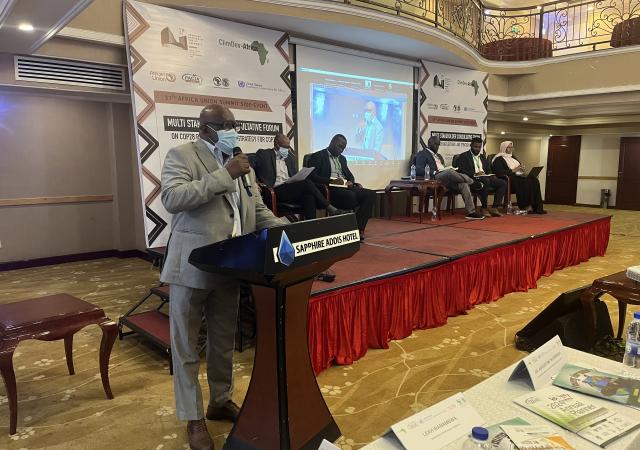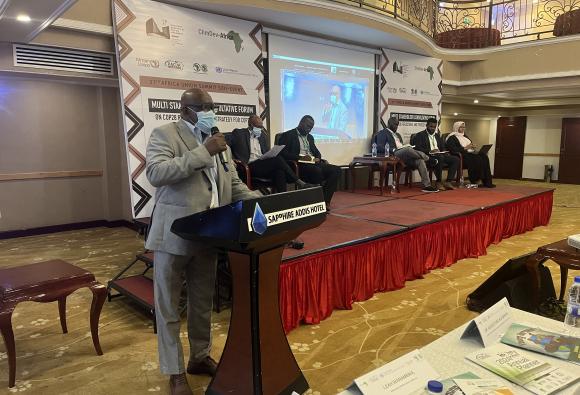Background
The thirty-seventh Assembly of the Heads of State and Government of the African Union under the theme “building resilient education systems for increased access to inclusive, qualitative, lifelong and relevant learning for Africa”, takes place in a polarized geopolitical context where countries are facing social, political, economic, security, health and environmental upheavals, all converging to test international solidarity in the times of calamities, and the tenacity of Institutions such as African Union and the United Nations.
For the African continent, these crises have been compounded by the climate crisis, deepening debt burdens, uncontrollable food-and-cost-of-living conundrum, energy crisis, the extra-constitutional overthrow of governments and constraining AU’s ability to respond, thus heightening inequality and imperiling human rights.
Though happening further away from the continent, the ripple effects of the Ukraine-Russian War and that of Israel-Palestine have had a tremendous impact on Africa’s economic, socio-political and diplomatic interactions, and demonstrated how global crises are interconnected.
The prevailing climate crisis, the debt crisis and the fragility of many countries in Africa have interacted to fundamentally alter their ability to fulfil their human rights obligations and undermine the enjoyment of economic and social rights. As a foundation for economic sustainability, education is essential in fostering climate resilience (alongside other crises) by promoting climate/environmental literacy, including empowering individuals and communities to make informed decisions. Obviously, climate change has affected education, while education, similarly, can affect the efforts to tackle climate change – and thus the relevance of the sideevent to the 2024 theme of the African Union Summit.
In addition to equipping people - especially the youth and children - with knowledge and skills to tackle climate change, education is also crucial for inspiring sustainable livelihoods, fostering innovation and influencing transformative policy options necessary in the transition towards low-carbon, carbon, climate-resilient, inclusive development pathways.
Addis Ababa will be a key moment to reflect on Africa’s conversations on climate change throughout 2023, including the Africa Climate Summit, which was mandated by the Assembly of Heads of State, and hosted jointly by the African Union Commission and the Government of Kenya. As the flagship activity of the year, the Summit elevated African voice in international discourse on climate change, and ostensibly rallied African people around a unified voice, manifested by the Nairobi declaration, which triumphantly fed into the African Position to UNFCCC-COP28 in Dubai, UAE.
But despite an apparently strongly mobilized Africa and a common position backed by strong voice by leaders, issues responsive to the continent’s realities, aspirations and imperatives of climate justice remain contentious in UNFCCC negotiations, and COP28 was not different. It is thus important to look back, assess our effectiveness in navigating the global geopolitical interactions, interrogate whether all investments put into the mobilization towards COP28 were worth it, draw the lessons and chart the way forward for 2024 and beyond.
The Side Event
In addition to the AU’s main theme revolving around education, the coup d’états and security hotspots across Africa1 and Israel/ Palestine, Russia/Ukraine war and financial crisis are likely to dominate the Summit, the COP28 and climate action is one of the most critical areas that is anticipated to take centre stage. These conversations should not be viewed as separate, but as subjects that are all inextricably linked, especially with the agenda 2063, whose implementation is crucial for achieving the continent’s economic advancement, environmental sustainability social development, political stability and regional integration.
The event follows the practice of strategic convenings by ClimDev partners, which facilitates participants’ interactions with key stakeholders attending the AU Summits, and positions climate action as a key issue of focus in the competing priorities in the Summit. It is our conviction that other ambitious sustainable development global strategies, including Agenda 2030 of the United Nations, ought to remain complimentary, and should be driven by the region’s resource local knowledge systems, with Africa taking leadership of its development aspirations and integrating knowledge and practices from external forces ignorant of the continent’s context.
Coming at the critical moment of reflections when our Africa’s unified position is facing the test as demonstrated by the inability of the African Group of Negotiators (AGN) to elect a Chair and the dispersal of various African countries into competing global blocs, this event is crucial in galvanizing critical groups – especially government representatives – to exchange views and address the nagging question of disjointedness when pursuing Africa’s interests in international dialogue on climate action.
The AGN’s crisis of leadership is a manifestation of the concerns raised over years on the deteriorating relationship among African negotiators, whose efforts have deliberately been fragmented over years based on language, geographical and “identity” basis. Calls have remained louder on Africa’s need to remain unified, with the CAHOSCC providing political leadership, while the African Ministerial Conference on the Environment (AMCEN), should step in and consistently provide guidance to the technical experts under African Group of Negotiators (AGN).
On their part, Non-State Actors such as the civil society, private sector, UN Agencies, youth and women should rally behind the African position while holding governments accountable.
This will only be achieved through robust engagement, not only by convenings during strategic moments like AU Summits, but also outreach to strategic individuals and institutions relevant to the goal and objectives we seek to achieve.
The Forum will be one of the efforts to map out Actors, build trust and continuously reach out to each other based on shared vision on positioning Africa as a strategic Partner in the inevitable transition to low-carbon, ecologically-just, climate-resilient future.
Objectives
- To exchange perspectives, and discuss key outcomes of UNFCCC-COP28, reflect on the Africa Climate Summit and assess Africa’s wins and misses in 2023.
- To draw recommendations and contribute to the Climate Change Decisions of CAHOSCC and the thirty seventh Assembly of Heads of State and Government of the African Union
- To extend outreach and interact with the delegates and political leaders in ways that reinforce and unify African stakeholders’ collective effort in shaping and influencing the global discourse on climate action.
- To discuss and build consensus on the next steps towards, during and beyond COP29
Documents


